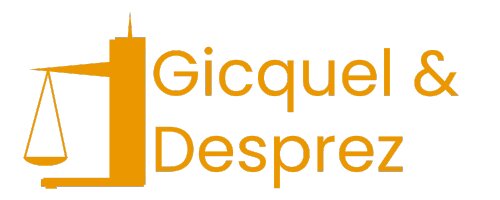Best Civil Rights Lawyers in Vannes
Share your needs with us, get contacted by law firms.
Free. Takes 2 min.
List of the best lawyers in Vannes, France
About Civil Rights Law in Vannes, France
Civil Rights law in Vannes, much like the rest of France, is designed to protect the individual freedoms and rights of citizens. These laws ensure equality, non-discrimination, and the promotion of human rights, which encompass a broad range of issues including freedom of expression, privacy rights, and protection against discrimination based on race, gender, disability, or sexual orientation. Vannes, being part of France, adheres to national laws while also being influenced by European Union regulations and international treaties. This legal framework is meant to uphold the dignity and rights of individuals within the region.
Why You May Need a Lawyer
There are several situations in which individuals in Vannes might seek legal assistance related to Civil Rights:
- Experiencing discrimination in the workplace, in housing, or in accessing public services.
- Dealing with violations of privacy, such as unlawful surveillance or data breaches.
- Facing issues related to freedom of speech or expression, including unlawful censorship.
- Concerns regarding equality rights, such as unfair treatment due to gender, race, or other protected characteristics.
- Navigating disputes with governmental agencies or public bodies that infringe on civil liberties.
Legal professionals specializing in Civil Rights can provide crucial guidance and representation in these matters, helping individuals understand the complexities of the law and advocating for their rights.
Local Laws Overview
Civil Rights laws in Vannes are primarily governed by the French national legal system, with specific attention to the following key aspects:
- The French Constitution, which contains the Declaration of the Rights of Man and of the Citizen, outlining fundamental rights and freedoms.
- The Penal Code and the Civil Code, which include statutes related to discrimination, equality, and other civil rights matters.
- Laws specific to data protection, such as the French Data Protection Act, which align with the EU's General Data Protection Regulation (GDPR).
- Anti-discrimination statutes covering various domains including employment, housing, and access to public services.
- The 1978 Information Technology and Freedom Law, focusing on the protection of personal data.
Understanding these laws is integral for ensuring your rights are upheld and properly defended in any legal proceedings.
Frequently Asked Questions
What is considered discrimination under French law?
Discrimination occurs when a person is treated unfairly or unequally based on characteristics such as race, gender, age, disability, religion, or sexual orientation. This can occur in various settings such as employment, housing, or public services.
How do I file a complaint if I experience discrimination in Vannes?
Complaints can be filed with the Défenseur des Droits (Defender of Rights), an independent authority tasked with defending individuals against abuse and discrimination. Legal assistance can also help navigate the specifics of filing a complaint.
Are there any legal protections for gender equality in the workplace?
Yes, French law mandates equal pay for equal work and prohibits any form of gender-based discrimination in employment practices and policies.
What are my rights if my privacy is violated?
Individuals have the right to privacy, and any unlawful data processing or surveillance can be legally challenged. The CNIL (Commission Nationale de l'Informatique et des Libertés) oversees data protection laws and can handle complaints.
What entitles a legal action for freedom of expression violations?
If censorship or restrictions unlawfully limit your freedom of speech, legal action can be taken. However, this freedom must be exercised responsibly, without inciting violence or hatred.
How can I prove discrimination in a legal case?
Gathering evidence is crucial, including documents, witness testimonies, or recordings that demonstrate disparate treatment or bias. Legal councils can assist in building a strong case.
Is there a time limit for bringing a civil rights claim forward?
Like most legal matters, there are statutes of limitations that dictate how long after an incident you can bring a claim. It's important to consult with a lawyer to ensure timely action.
What organizations can assist with civil rights issues in Vannes?
Besides the Défenseur des Droits, local legal aid organizations and non-profits can provide resources and support for those dealing with civil rights issues.
Can non-citizens seek legal protection for civil rights violations?
Yes, civil rights protections extend to all individuals within France, not just citizens. Non-citizens can also seek legal assistance for violations.
What steps should I take if my rights have been violated?
Document the incident, gather any possible evidence, and seek legal counsel promptly. Time-sensitive actions may be required to address the violation effectively.
Additional Resources
- Défenseur des Droits: An independent authority that can assist with discrimination and rights violations.
- CNIL: Oversees privacy and data protection issues.
- Local legal aid organizations: They may offer free or low-cost legal advice and representation.
- Human rights organizations: Often provide advocacy and support resources for individuals facing rights issues.
Next Steps
If you believe your civil rights have been violated and you need legal assistance, start by documenting all related information and evidence. Contact a lawyer specializing in civil rights to discuss your case and explore your options. It's crucial to act quickly, as certain actions may be required within specific time frames to preserve your legal claims. Utilizing local resources, including governmental bodies and non-profit organizations, can also provide valuable support and guidance.
Lawzana helps you find the best lawyers and law firms in Vannes through a curated and pre-screened list of qualified legal professionals. Our platform offers rankings and detailed profiles of attorneys and law firms, allowing you to compare based on practice areas, including Civil Rights, experience, and client feedback.
Each profile includes a description of the firm's areas of practice, client reviews, team members and partners, year of establishment, spoken languages, office locations, contact information, social media presence, and any published articles or resources. Most firms on our platform speak English and are experienced in both local and international legal matters.
Get a quote from top-rated law firms in Vannes, France — quickly, securely, and without unnecessary hassle.
Disclaimer:
The information provided on this page is for general informational purposes only and does not constitute legal advice. While we strive to ensure the accuracy and relevance of the content, legal information may change over time, and interpretations of the law can vary. You should always consult with a qualified legal professional for advice specific to your situation.
We disclaim all liability for actions taken or not taken based on the content of this page. If you believe any information is incorrect or outdated, please contact us, and we will review and update it where appropriate.









